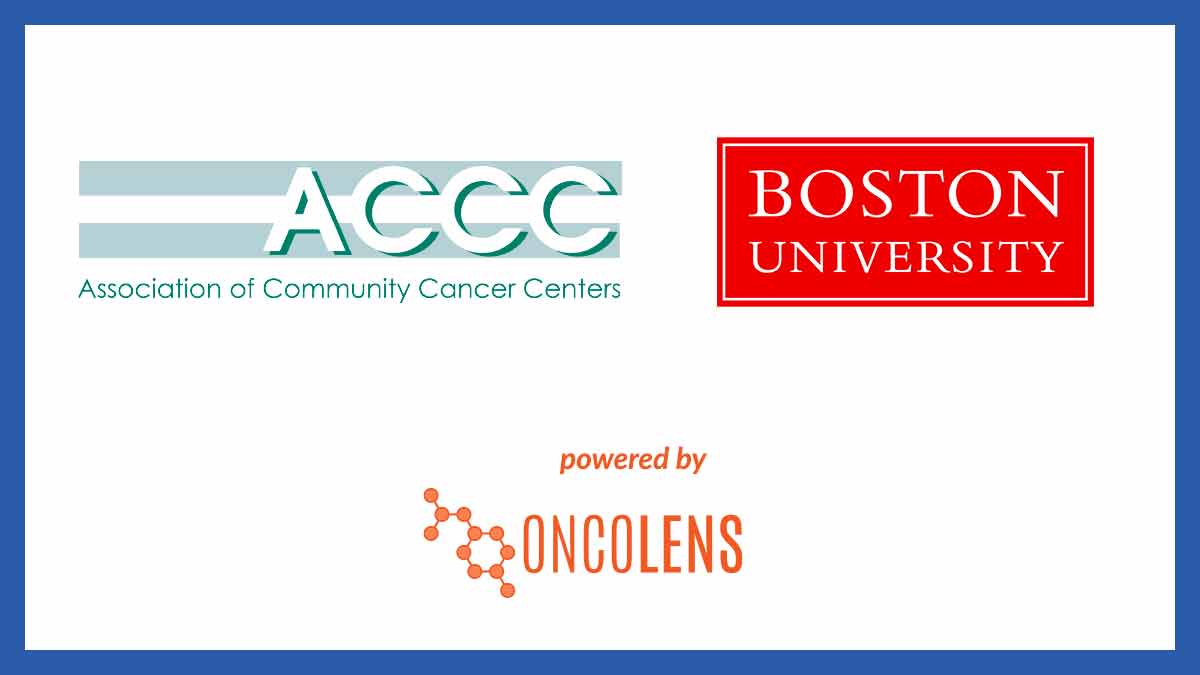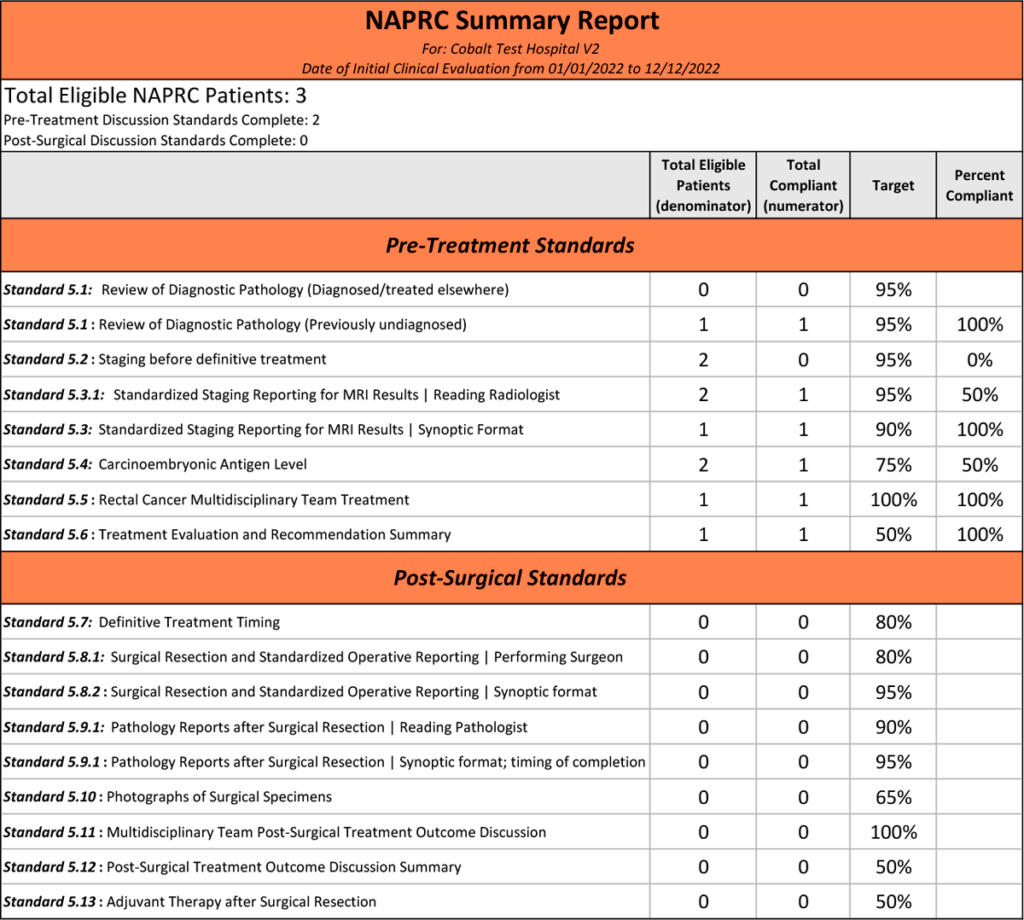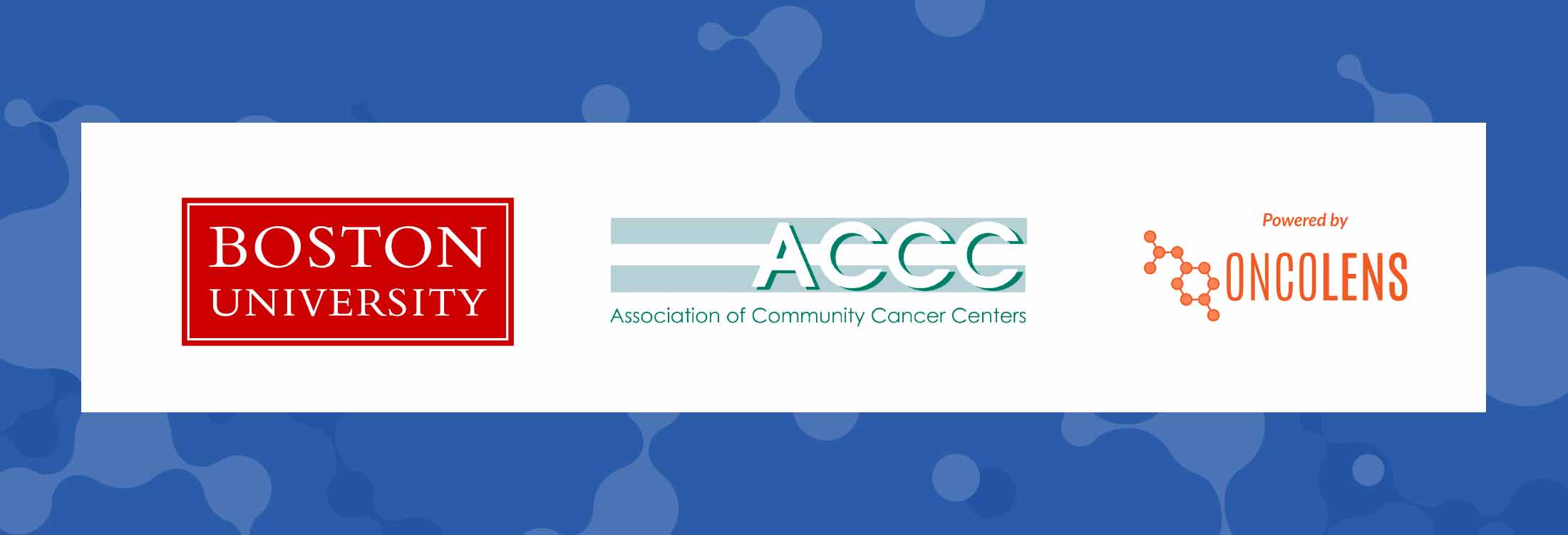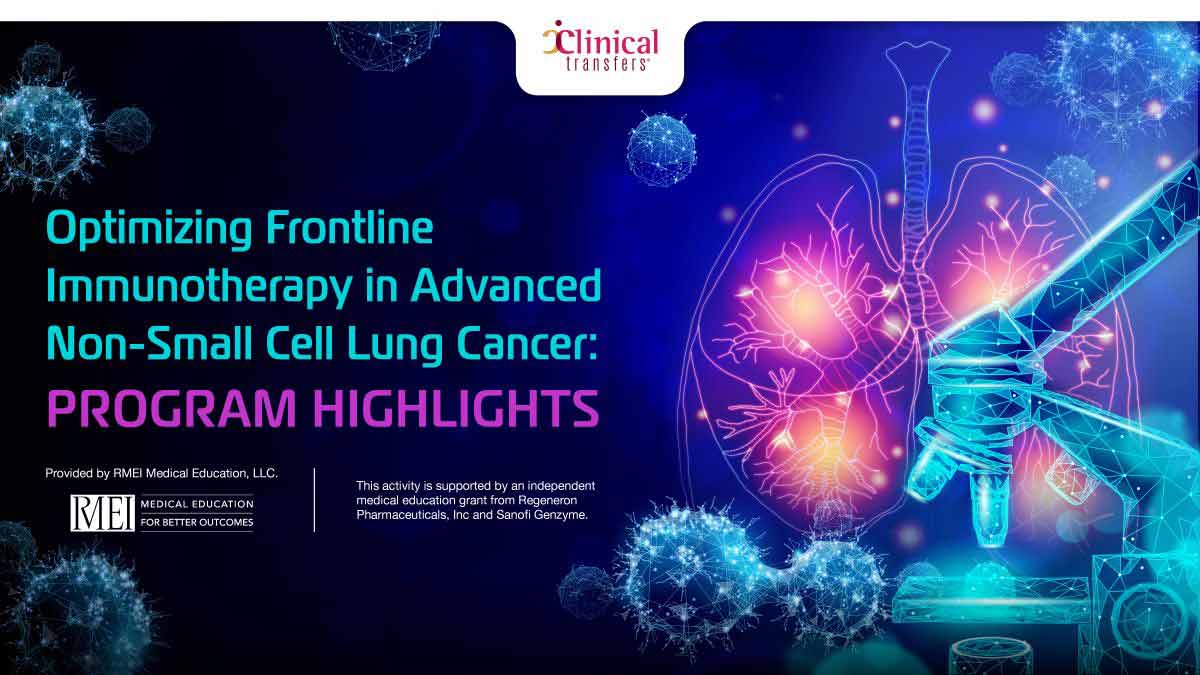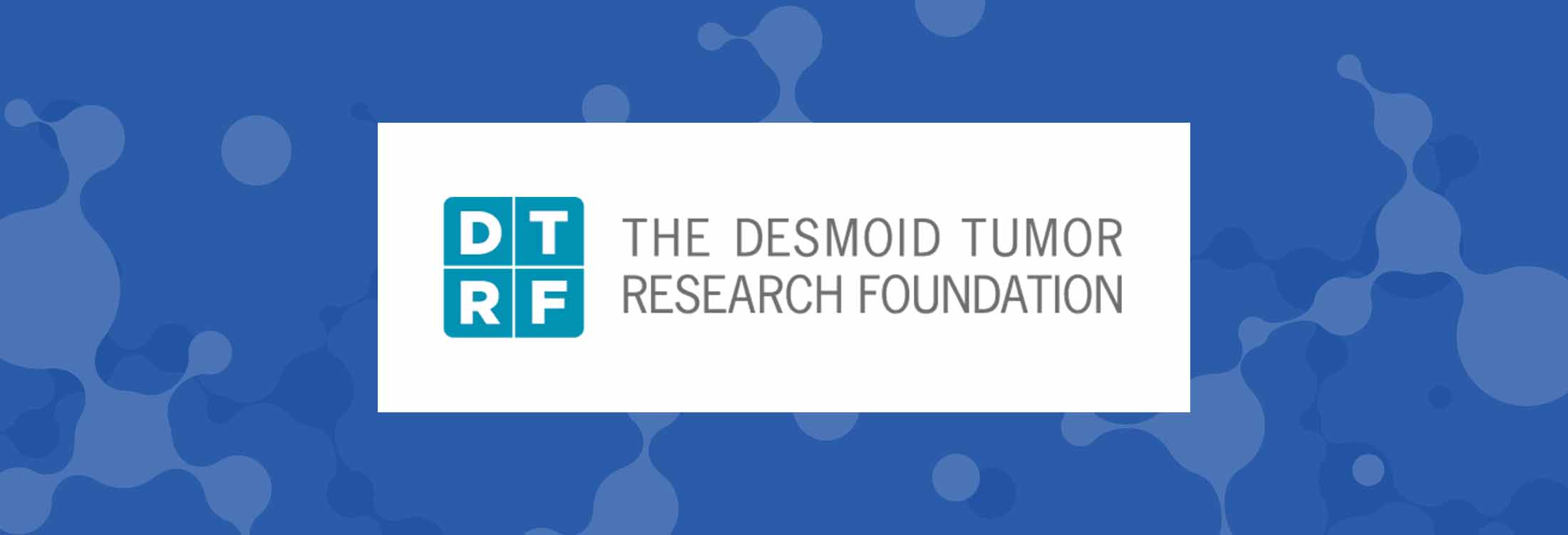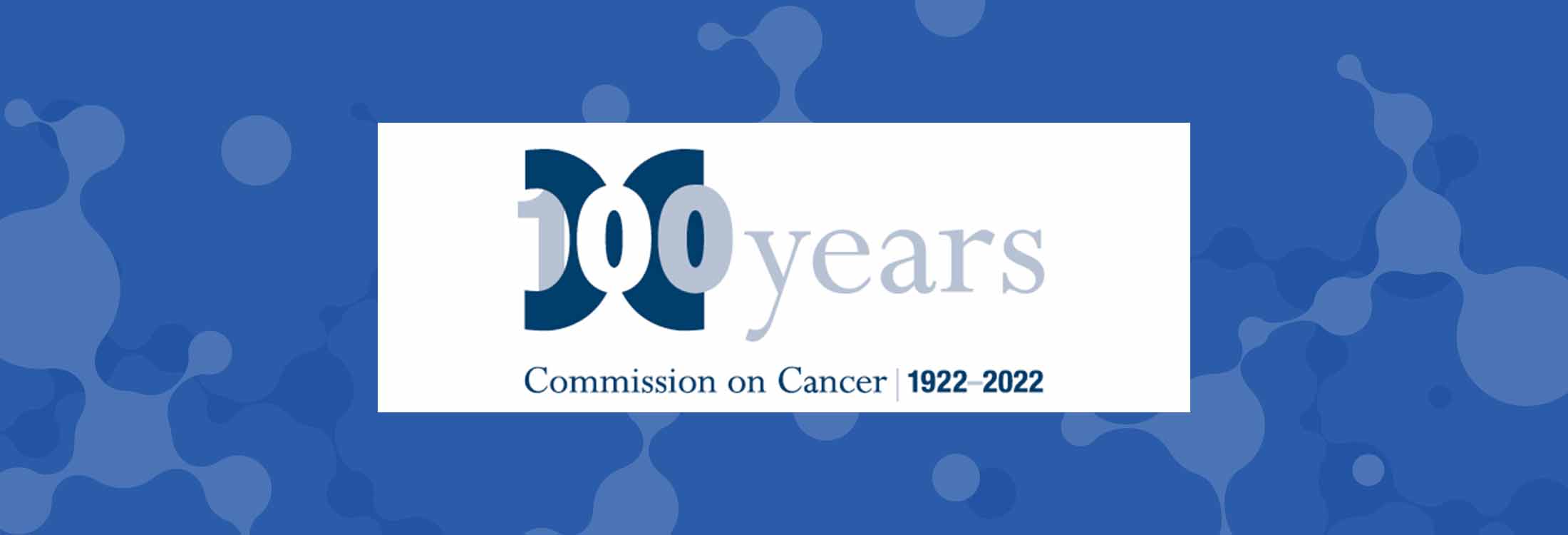We hosted Chase Adams, MBA, MHA, Executive Director, Oncology & Radiation Services for Wellstar Kennestone Regional Medical Center and Timothy Mullett, MD, MBA, FACS, Medical Director for the UK Markey Cancer Center Affiliate and Research Networks and Chair, American College of Surgeons Commission on Cancer to discuss multidisciplinary cancer care, quality and business outcomes, and the future of cancer care continuum management.
In addition to sharing invaluable lessons learned from decades of cancer care delivery, they identified five major trends that will shape the cancer patient and provider journey across 2022.
Trend: The way we measure the success of multidisciplinary cancer care will expand
While survivorship remains an overarching measure of success, Adams and Dr. Mullett anticipate that oncology will expand and refine key performance indicators across quality and business outcomes.
As cancer programs improve planning and continuum management, they will gain more profound and nuanced insights into quality improvement indicators. Within the tumor board, the number of referrals, number of patients presented, and number of physicians engaged are all associated with improvements in the experience of care and outcomes. Longer-term quality measures point to increased resource utilization, increased patient retention, and a reduction in the time between patient interactions with the healthcare system.
“I think that there are other (metrics) that we could be looking at: number of referrals to rehabilitation, number of referrals to genetic counseling, number of patients that are accrued to clinical trials or even considered for clinical trials. Those are the tools that I think are going to lead to those long-term measures of success,” said Dr. Mullett.
Adams cited business outcomes that can be tied back to a multidisciplinary care approach, including expanded provider engagement, reduced readmissions, and avoidance of potential penalties:
“If we are able to expand (multidisciplinary clinics) throughout our health system, that starts to bring in more providers who might not be part of a larger system. The impact includes significant positive returns on driving downstream revenue, reduced readmissions, and better outcomes.”
Trend: Creating and operationalizing connections across the oncology landscape will become a reality
Connection in today’s cancer center looks very different. And many of the changes facilitated by COVID-19 have helped increase engagement and access for providers who can’t always join a tumor board or conference in person. But Adams and Dr. Mullett see connection expanding beyond technical modalities to bring down the data, access, time, and place challenges that perpetuate artificial barriers. They see multidisciplinary care enabled by a shared patient view discussed synchronously and asynchronously across providers and the patient and provider journey. And through this approach, cancer programs can drive the inclusion of perspectives and voices from the entire care continuum.
“It’s important as we begin more hybrid care where we’re connecting with other facilities. We also need to think about navigators and survival specialists. So, we try to get them involved in our tumor boards, but sometimes that’s not able to be done in a synchronous manner. Finding some way that we can communicate with them about the decisions or the recommendations that come from the multidisciplinary conversation is really going to be more and more important,” said Dr. Mullett.
Trend: Patient satisfaction, engagement, and resilience will be key outcomes of multidisciplinary programs
The patient is at the center of cancer care. A truly multidisciplinary approach extends beyond a single tumor board or meeting and brings the patient—her concerns, her wishes, and her anxieties—into the entire experience. The connection and care management that multidisciplinary care facilitates creates a pathway to patient engagement and satisfaction. And this helps build the trust and resiliency critical to an effective patient journey.
When I’m talking to my patients, they find it very helpful when I suggest that we’re going to present their case to a conference that has 20 physicians. I share with them that it’s not just me thinking about this. I may be the one presenting the case. I may be the one presenting my recommendation for treatment. But it’s validated by all these other folks. And they love to hear the fact that there has been a conversation about them and that they are not just part of a system,” said Dr. Mullett.
Adams and his team at Wellstar Kennestone implemented a STAT clinic as part of their overall multidisciplinary approach. They bring the patient into the clinic setting, where she can meet with the entire team working on the case. The goal is to expedite the time from diagnosis to the initiation of treatment. And by including the patient in the process, Wellstar can drive engagement, assurance and accelerate the care pathway.
Trend: Multidisciplinary care will become a foundational approach that extends beyond the tumor board
As cancer programs continuously improve multidisciplinary care, Dr. Mullett and Adams foresee the extension of the approach’s core tenants into all aspects of care delivery and optimization. The process, Dr. Mullett explained, starts with a physician champion:
“We have to get to the reason why. And I think that it requires a physician champion who’s engaged in the process who can speak to the reason why. The fact that we want to get from doing things in multiple different ways in multiple different formats to a single format. That allows us to be able to communicate so that different disease teams can communicate using the same structure.”
He went on to highlight how this approach influences key activities, including staging:
“Even to a point of defining staging and standardizing that process because that’s what drives treatment. Clinical stage drives eligibility for clinical trials and consideration of which trials might be appropriate for a patient. Increasing that level of transparency to talk about patients in a prospective fashion rather than a retrospective one—I think that that’s what encourages a number of folks.”
At Wellstar, Adams and his team use their STAT clinics to help route patients on the best care pathway and collect as much information as possible to staff appropriately. The clinic also serves to help lower the administrative and cognitive demands on providers. Patient data is collected, consolidated, and presented in a way that optimizes provider engagement through planning, communication, and virtualization.
Adams and his team apply the same multidisciplinary principles to identify and address improvement opportunities:
“It requires a multidisciplinary team from across the continuum to come together to address gaps. This is because once we have identified an issue–whether it be in a process or a lack of a resource or any other barrier within our program–more than likely it’s affecting more than one party. It requires all of us to come together to come up with the appropriate solution. None of these improvements or decisions happen in a vacuum. It does no one any good for me to sit in my office and hear about an issue and then come up with a solution myself because nine times out of ten, what’s good for me is probably not good for them.”
Trend: Incorporating and addressing social determinants will be a key outcome of a multidisciplinary cancer care program
Social Determinants of Health (SDOH) impact cancer outcomes. The tools, processes, and access enabled by a multidisciplinary care approach play a vital role in addressing SDOH and neutralizing the practical barriers that increase risk and negatively impact the cancer experience.
Dr. Mullett and his team and UKY Markey Cancer Center serve a broad and diverse population across Kentucky, including patients who may be 50 or 100 miles away from the cancer center. The ability to connect with patients through affiliated providers helps ensure care continuity, reduce the time between healthcare interactions, and supports the Center’s mission of delivering cancer care closer to home. During our session, Dr. Mullett shared the following thoughts on SDOH and the role of multidisciplinary care:
“The idea of using (multidisciplinary care) as another mechanism to get to those disparities in cancer care and the ability to think asynchronously about communicating with other team members is important. In our system, most of our patients come from more than 50 miles away, and they may be traveling roads that are not easily traversed. Having that communication that occurs in a multidisciplinary manner and that follow-on communication that occurs through an asynchronous route is a way to be able to address many (SDOH).”
Adams and Dr. Mullett shared many more insights and lessons from their journeys with multidisciplinary cancer care. You can listen to the entire session here. The recording lasts for about an hour and our speakers touch on:
- The multidisciplinary cancer care key performance indicators that are associated with quality and outcome opportunities
- Critical considerations for multidisciplinary team optimization including communication, documentation, and reporting
- Lessons learned in multidisciplinary team adoption and engagement
- The care quality and cost traps that can impact outcomes if not addressed
- A maturity model to help baseline current operations and develop a path to optimization of a multidisciplinary approach

